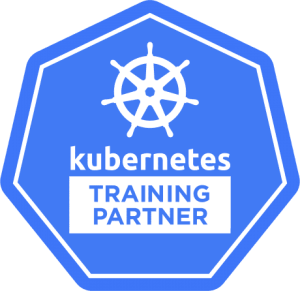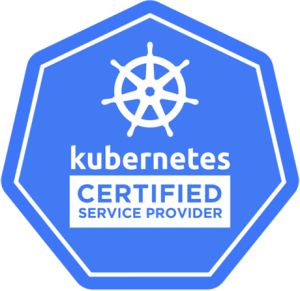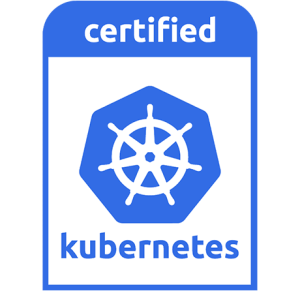Blogs
Kubernetes Objects
Node
List all nodes in the cluster
kubectl get nodesDelete a node from the cluster
kubectl delete node <node name>Show the metrics of a node
kubectl top node <node name>Describe a node in detail
kubectl describe node <node name>List all pods in a namespace, with more details
kubectl get node -o wide ¬-n <namespace>Add an annotation to a node
kubectl annotate node <node name> Add a label to given node
kubectl label node <node name> type=labelShow node labels
kubectl get nodes --show-labelsShow information about a node in yaml format
kubectl get node <node name> -o yamlShow information about a node with the given label
kubectl get node --selector=<label>
Pod
List all the pods in a namespace
kubectl get pod -n <namespace>List pods with more details
kubectl get pods -o wideShow the detailed description of pod
kubectl describe pod <pod name>Delete a pod with a file describing it
kubectl delete -f pod.yamlCreate a pod in a certain namespace
kubectl create pod <pod name> -n <namespace>Create a pod from an image
kubectl run <pod name> --image=<image name>Show logs of a pod
kubectl logs <pod name> -n <namespace>Execute a command in a pod and get an interactive terminal
kubectl exec -it <pod name> -- <command>List all running pods in a namespace
kubectl get pods --field-selector=status.phase=RunningLive monitor the state of a pod
kubectl get pod <pod name> --watchLive monitor the state of all pod
kubectl get pod -A --watchShow all pods in json format
kubectl get pods -o jsonList all pods in all namespaces
kubectl get pods --all-namespacesList all pods in all namespaces
kubectl get pods -AShow metrics for a given pod
kubectl top pod <pod name>Show metrics for a given pod and all its containers
kubectl top pod <pod name> --containersView container logs of a pod (if it has more than one container)
kubectl logs <pod name> -c <container name>Get the documentation for the pod manifest
kubectl explain podList pods with labels
kubectl get pods --show-labelskubectl using a different kubeconfig
kubectl --kubeconfig=<path to config file> get podsGet the initContainer status of a pod
kubectl get pod --template '{{.status.initContainerStatuses}}' <pod name>Print a list of pods sorted by name
kubectl get pods --sort-by=.metadata.name
Deployment
Create a new deployment
kubectl create deployment <deployment name> --image=<image>Create a new deployment from a manifest file
kubectl apply -f <deployment manifest>List deployments
kubectl get deployment <deployment name>Watch a specific deployment
kubectl get deployment <deployment name> --watchList all deployments
kubectl get deployment -AShow the detailed state of a deployment
kubectl describe deployment <deployment name>Delete a deployment
kubectl delete deployment <deployment name>Rolling update nginx of deployment
kubectl set image deployment/<deployment name> <container name>=<image>Scale a deployment to 10 instances
kubectl scale --replicas=10 deployment/<deployment name>Autoscale a deployment to stay near 80% cpu usage with the limitation of staying between 10-15 instances
kubectl autoscale deployment/<deployment name> --min=10 --max=15 --cpu-percent=80Rolling back to the previous revision
kubectl rollout undo deployment/<deployment name>Rolling back to a specific revision
kubectl rollout undo deployment/<deployment name> --to-revision=<revision name>Check the rollout status of a deployment
kubectl rollout status deployment/<deployment name>Show the revision history of a deployment
kubectl rollout history deployment/<deployment name>Live edit a deployment
kubectl edit deployment/<deployment name>Port forwarding of a deployment to a specific port
kubectl port-forward deployment/<pod name> <localhost port>:<pod port>
DeamonSets
List all the daemon sets in a namespace
kubectl get daemonset --namespace <namespace>List all daemon sets in all namespaces
kubectl get daemonset --all-namespacesDetailed information about a daemonset in yaml format
kubectl get daemonset <daemonset name> --namespace <namespace> -o yamlDetailed information for a specific daemon set in a namespace
kubectl describe daemonset <daemonset name> --namespace <namespace>
Configmaps
Create configmap from a file
kubectl create configmap <configmap name> --from-file <configmap manifest>Get more details about specific configmap
kubectl describe configmap <configmap name>List all configmaps in a namespace
kubectl get configmap --namespace <namespace>Get specific configmap in yaml format
kubectl get configmap <configmap name> -o yamlList all configmaps in all namespaces in yaml format
kubectl get configmap --all-namespaces -o yaml
Services
List all services in a namespace
kubectl get services --namespace <namespace>List the services in a namespace with additional information
kubcetl get service --namespace <namespace> -o wideShow the detailed information of a service
kubectl describe service <service name>Delete a particular service
kubectl delete service <service name>Get the documentation for service manifests
kubectl explain servicePort forwarding a service
kubectl port-forward service/<service name> <localhost port>:<service-port> Creates a Service of type nodeport with a mapping of post 8080 to 80
kubectl create service nodeport <service name> --tcp=8080:80List services with their labels
kubect l get service --show-labelsDescribe a service in yaml format
kubect l get service <service name> -o yaml
Service Account
List Service Accounts
kubectl get serviceaccountsDetailed state of a service accounts
kubectl describe serviceaccount <serviceaccount name>Replace a service account
kubectl replace serviceaccount <serviceaccount name>Delete a service account
kubectl delete serviceaccount <serviceaccount name>Live edit a service account
kubectl edit serviceaccount <serviceaccount name>
Secrets
kubectl describe secret/<secret name>
Show all secrets in a namespace
kubectl get secrets -n <namespace>Describe a secret in more details
kubectl describe secret/<secret name>List secrets in all namespaces
kubectl get secrets --all-namespacesList secret in yaml format
kubectl get secret <secret name> -o yaml
Roles
List all roles in cluster
kubectl get roles --all-namespacesList all clusterroles
kubectl get clusterrolesList all role bindings and clusterrolebindungs in the cluster
kubectl get (cluster)rolebinding --all-namespacesCreate the role “pod-reader” which can list and watch pods
kubectl create role pod-reader --verb=get --verb=list --verb=watch --resource=pods
Namespace
Create a namespace
kubectl create namespace <namespace name>List all namespaces in a cluster
kubectl get namespacesGet a namespace description in yaml format
kubectl get namespace <namespace name> -o yamlDisplay detailed state of a namespace
kubectl describe namespace <namespace name>Delete a namespace
kubectl delete namespace <namespace name>Edit and update the definition of a namespace
kubectl edit namespace <namespace name>Create a namespace using a yaml file
kubectl create -f namespace.yaml Create a namespace using a yaml file
Replicasets
List all replicasets in current namespace
kubectl get replicasetsDescribe detailed a replicaset in detail
kubectl describe replicaset <replicaset name>List ReplicaSets with more information
kubectl get replicaset -o wideList ReplicaSet in yaml format
kubectl get replicaset <replicaset name> -o yamlGet the documentation for the ReplicaSet manifest
kubectl explain replicasetList all persistent volumes in a namespace
kubectl get persistantvolume -n <namespace>Describe a persistent volume
kubectl describe persistantvolume <persistantvolume name>Delete a persistent volume
kubectl delete persistantvolume < persistantvolume name>List the storage classes in yaml format
kubectl get storageclass –o yaml
PersistentVolume Claim
List all persistent volume claims in a namespace
kubectl get persistentvolumeclaim <persistentvolumeclaim name>Describe a persistent volume claim
kubectl describe persistentvolumeclaim <persistentvolumeclaim name>Delete a persistent volume claim
kubectl delete persistentvolumeclaim <persistentvolumeclaim name>List ingress resource
kubectl get ingressList ingress resources in all namespaces
kubectl get ingress --all-namespacesGet information about the ingress object
kubectl explain ingressGet information about an ingress
kubectl describe ingress <ingress name>List all ingress objects with their corresponding services
kubectl get ingress -o=custom-columns='NAME:.metadata.name,SVCs:..service.name'
Labels
List assigned labels on the node
kubectl get nodes --show-labelsList assigned labels on the pods
kubectl get pods --show-labelsAdd label to node
kubectl label nodes <node name> <label>Remove label from a node, same command but you see minus after the label name
kubectl label node <node name> <label>-Set to the pod the label status and value unhealthy, overwriting any existing value
kubectl label --overwrite pods <pod name> status=unhealthy
Events
View all events in the cluster
kubectl get events --all-namespacesList events in json format
kubectl get events -o jsonGet events from of a pod
kubectl get events | grep <pod name>This also shows events
kubectl describe pod <pod name>List Events sorted by timestamp
kubectl get events --sort-by=.metadata.creationTimestampList all warning events
kubectl events --types=Warning
API Resources
Enumerates the resource types available
kubectl api-resourcesList api group
kubectl api-versionsAll namespaced resources
kubectl api-resources --namespaced=trueAll non-namespaced resources
kubectl api-resources --namespaced=falseList all CRDs
kubectl get crdList storageclasses
kubectl get storageclassList the “healty” status of components
kubectl get componentstatuses
Themes
Logs & Conf files
Config folder
/etc/kubernetes/Certificate files
/etc/kubernetes/pki/Credentials to API server
/etc/kubernetes/kubelet.confSuperuser credentials
/etc/kubernetes/admin.confkubectl config file
~/.kube/configKubernets working dir
/var/lib/kubelet/Docker working dir
/var/lib/docker/, /var/log/containers/Etcd working dir
/var/lib/etcd/Network cni
/etc/cni/net.d/Log files
/var/log/pods/log in worker node
/var/log/kubelet.log, /var/log/kube-proxy.loglog in master node
kube-apiserver.log, kube-scheduler.log, kube-controller-manager.log
Quotas & limits
List Resource Quota
kubectl get resourcequotaList Limit Range
kubectl get limitrangeCustomize the resource limit of a pod for CPU
kubectl set resources deployment nginx -c=nginx --limits=cpu=200mCustomize the resource limit of a pod for memory
kubectl set resources deployment nginx -c=nginx --limits=memory=512Mi
Annotations & Taints
Get annotations of deployment
kubectl describe deployment/<deployment name> | grep AnnotationsUpdate annotations
kubectl annotate pods <pod name> <key>=<value>Override annotation of a resource
kubectl annotate --overwrite <resource type> <resource name> <key>=<value>Update the taints of a nodes
kubectl taint <node name> <taint name>
Common Metric Commands
Show metrics for a given node
kubectl top node <node name>Show metrics for a given pod
kubectl top pod <pod name>Show metrics for a given pod and all its containers
kubectl top pod <pod name> --containers
Common Log commands
Check logs of a pod
kubectl logs <pod name> --namespace <namespace>Container logs in a pod (if more than one)
kubectl logs <pod name> <container name>Logs from all containers in a pod
kubectl logs <pod name> --all-containersGet logs from the last hour
kubectl logs --since=1h <pod name>Display the most recent 20 lines of logs
kubectl logs --tail=20 <pod name>Save the logs into a file
kubectl logs <pod name> <file name>Get logs filtered by label
kubectl logs -l <label key>=<label value> --all-containersGet logs from deployment
kubectl logs deployment/<deployment name>Get logs from job
kubectl logs job/<job name>Export logs to a file
kubectl logs <pod name> > <file name>
Security
List Network Policy
kubectl get networkpolicyList certificates
kubectl get certificateShow kubeconfig settings
kubectl config viewGet a List of contexts
kubectl config get-contextsDisplay current context
kubectl config current-contextSet default context to <cluster name>
kubectl config use-context <cluster name>Set namespace field for context
kubectl config set-context <context name> --namespace=<namespace>Set cluster field for context
kubectl config set-context <context name> --cluster=<cluster name>Set user field for context
kubectl config set-context <context name> --user=<username>
Maintenace
Mark the named node as unschedulable
kubectl cordon <node name>Mark the named node as schedulable
kubectl uncordon <node name>Drain the node in preparation for maintenance
kubectl drain <node name>This will give you the pod CIDR addresses for each of the nodes in your cluster.
kubectl get nodes -o jsonpath='{.items[*].spec.podCIDR}'Delete a resource matching a label
kubectl delete <resource type> -l <label key>=<label value>Display addresses of master / services
kubectl cluster-infoDetailed info about the cluster state to stout
kubectl cluster-info dumpThis will show pod network CIDR which used by kube-proxy
kubectl cluster-info dump | grep -m 1 cluster-cidrDump current cluster state to a given file
kubectl cluster-info dump --output-directory=/path/clusterinfo.txtTo get all objects of your cluster
kubectl get all --all-namespaces List services, pods, nodes, deployments and replicasets
kubectl get svc, po, no, deploy, rsOutput yaml to a file, creating template
kubectl run <pod name> --image=nginx --dry-run=client -o yaml > pod1.yaml
Addendum: Docker
Install on Linux
Install docker in linux terminal
curl -sSL https://get.docker.com/ | shInstall add. utils for docker (on RedHat systems)
sudo yum install -y yum-utilsInstall docker
sudo yum install docker-ce docker-ce-cli containerd.ioStart docker engine
sudo systemctl start dockerCheck status of docker
systemctl status dockerGet information about the docker installation
docker info
Container management
Create a container
docker create <image name>Create a container and run it
docker run <image name>Starting the given container
docker start <container name>Stopping the given container (graceful)
docker stop <container name>Restart (stop + start) the given container
docker restart <container name>Kill the given container (SIGKILL)
docker kill <container name>Pause the given container
docker pause <container name>Resume the given container
docker unpause <container name>Remove the container
docker rm <container name>Force the removal of running container
docker rm -f <container name>Real-time events from the given container
docker events <container-name>
Image management:
View docker images on local machine
docker imagesCheck running container
docker psCheck all containers (running and stopped)
docker ps -aRun the given container in background
docker run -d <container name>Delete the container with the ID
docker rm <container id>Show image history
docker history <image id>Tag an image
docker tag <source image> <target image>Delete an image
docker rmi <image name>Get low-level information
docker inspect <image name>
Images
Pull an image from a Registry
docker pull <image name>Push an image or repo to a registry
docker push <repository address> <image name>Search for an image on docker hub
docker search <image name>Load image from a tar archive
docker load <image tar file> Save one image or more to a tar archive
docker save <file name> <options>Login with Docker ID at Docker Hub
docker login
Build
Create an image from a dockerfile
docker build <options> <path to dockerfile>
-t <image name>
Run a command in a new container
docker run <options> <image name> <command>Create a new container
docker create <Image name> <options> <command>Create images using a git remote repository
docker git <git repository address>Create a container with a custom name
docker container create -ti --name <container name> <image name>
Inspecting / Interacting
Show information about a container
docker inspect <container name>List the processes inside the container
docker top <container name> <options>List the logfile of the container
docker logs <container name>Run a command in an existing container
docker exec <container name> <command>Export a container to tar archive
docker export <container name>Attach to a running container
docker attach <container name>Copy files from the given container
docker cp <container name:path> hostpath\-Copy files to the given container
docker cp hostpath\-<container name:path>Get live stream statistics of given container
docker stats <container name>List the installed plugins of docker
docker plugin ls
Clean up
Remove unused images
docker image pruneRemove all images
docker image prune -a Prune your entire system
docker system pruneKill all running containers
docker kill $(docker ps -q)
Author: Ralf Menti
Check out our latest blogpost
Kubernetes in Focus: An Outlook on Future Growth Areas
Any Questions?
Please feel free to contact us for any question that is not answered yet.
We are looking forward to get in contact with you!
KubeOps GmbH
Hinter Stöck 17
72406 Bisingen
Germany
-
Telefon:
+49 7433 93724 90
-
Mail:
This email address is being protected from spambots. You need JavaScript enabled to view it.





